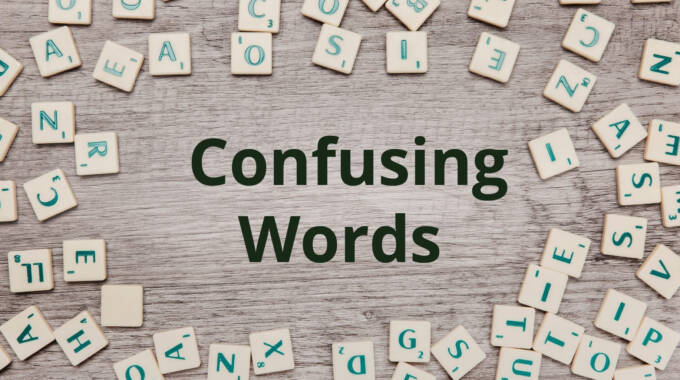
The ManicaPost

Friday Lessons with Uncle Jay
Students, I really hope you enjoyed the school holidays and that everyone has since settled back into school well.
In this week’s lesson, we take a look at five pairs of words that English learners get confused by.
Remember this whenever you are talking or writing.
Fun and funny
Both of these are positive adjectives.
fun: something that is enjoyable.
Something that we enjoy.
e.g “Going to the park with friends is fun.”
funny: something that makes us laugh is funny.
e.g “The comedy I saw last night was really funny. I laughed and laughed.”
Lose and loose
These two words are often confused in written English.
They have very different meanings.
lose: is a present tense verb.
The simple past and past participle forms are both lost. Lose has two meanings:
To no longer possess something because you do not know where it is.
e.g “Try not to lose this key, it’s the only one we have.”
Not to win or draw (tie) in a game or sport. To be beaten.
e.g “I always lose when I play tennis against my sister. She’s too good.”
Loose: is an adjective which means the opposite of tight.
Something which does not fit properly is loose.
e.g “His shirt is too loose because he is so thin.”
Advise and advice
Both of these have the same meaning.
They mean recommend. Advice is the noun form. Advise is the verb form.
e.g “She never listens to my advice.”
e.g “I advise you to spend more time planning projects in the future.”
Embarrassed and ashamed
The difference between these two adjectives is that ashamed is a much stronger word. It is used in very serious situations.
Embarrassed: to feel uncomfortable in a social situation because of your actions or because of what someone has done to you.
e.g “I felt embarrassed when I fell over in the street. Lots of people saw me fall. My face turned red.”
Ashamed: to feel guilt or strong embarrassment over your actions.
e.g “I am ashamed to tell you that I was arrested by the police for drink-driving.”
Lend and borrow
Both lend and borrow are verbs.
Although they are used in the same situation, they are opposites.
Lend: to give something to someone. They will give it back to you when they are finished with it.
e.g “I will lend you my car while I am away on holiday.”
Borrow: to receive or ‘get’ something from someone for a short period of time.
eg “Can I borrow your pen, please?”
Task:
You may now tackle this vocabulary quiz:
I enjoyed the amusement park. It was a lot of ___.
funny
fun
Your brother is so ___. How does he remember all those jokes?
funny
fun
Be careful with that jar. I think the lid is ___.
lose
loose
We don’t play cards for money so it doen’t matter if I ___.
loose
lose
Can I offer you a piece of ___?
advice
advise
The bank will ___ you on which account is best for you.
advise
advice
I was ___ when I called my neighbour by the wrong name.
ashamed
embarrassed
I am ___ over that country’s treatment of political prisoners.
ashamed
embarrassed
Do not ___ him your pen; you’ll never see it again.
borrow
lend
I tried to ___ my brother’s hammer, but he said “no”
lend
borrow



